Some students and parents place great importance on income, distinguishing which majors are easy to get rich from and which are worth studying, so they rush into “hot” majors. However, in reality, every profession has a need for human resources and “hot” majors are often very competitive, not to mention the risk of saturation if human resources - demand exceeds supply.
 |
| Parents need to accompany, listen, respect their children's decisions, and not impose arbitrarily. (Source: phunuonline) |
Prejudice, dead end of dreams
The impact of traditional East Asian culture in dividing gender roles also causes some parents and students to have gender prejudices when choosing a major or career.
Many young people have given up their dreams of studying because they fear gender pressure during their studies, as well as the job search process later on.
In fact, developmental psychologists and neuroscientists assert that occupational competence is not gender-specific, but rather socially oriented.
Another prejudice is the tendency to choose prestigious schools instead of majors that match one’s strengths and passions. Many students choose majors that are not their interests just because they want to get into a “top” school.
Using the school name as a measure of success is a misunderstanding of educational branding. This comes from the psychology of fame and the media effect of rankings of higher education institutions.
Similarly, because of the emphasis on reputation, many parents and students look down on majors with low scores and do not dare to choose them, even if they have suitable abilities.
Equating benchmark scores with career values, assuming low-scoring majors are bad majors will limit students' choices, leading to missing out on majors that match their abilities, interests, and future human resource needs.
The conservative notion that parents know better than their children, lack of faith in the younger generation, and fear of family traditions being lost have caused many parents to demand that their children follow in their family's footsteps. "If you can squeeze oil and fat, who can bear to force a career?" As a result, many students have dropped out of school because they are not interested in their field of study.
The mindset of valuing degrees also makes many people not interested in vocational colleges. While developed countries value vocational training, in Vietnam, vocational training is considered a loss, a failure?
And the harsh reality that "everyone has a university degree, every family has a university degree" but it is still difficult to find a job with a bachelor's degree is raising big questions about the path young people choose to enter the labor market today.
Know yourself, know your job, and you can fight a hundred battles with no danger of defeat.
One mistake can lead to a huge loss. Choosing the wrong major makes many students bored with studying and drop out. Not only do they lose confidence in themselves, they also find it difficult to determine their career, and when they finish school, they end up working in a different field.
From a social perspective, career prejudice leads to studying the wrong major. The result is a shortage of majors and a surplus of others, a waste of human resources, and increased unemployment even with a university degree.
Choosing a career is a personal journey that determines the life of each person. The future is not for those who follow the stereotyped path. We must understand ourselves clearly by frankly answering the questions: "What do you want?", "What are you good at?", "What values do you live for?" through the use of scientific career testing tools.
For example, the Holland test helps identify career groups based on interests and preferred work environments, or the MBTI test helps identify personality types and thereby choose a suitable work environment. Or the Big Five (OCEAN) test helps deeply assess personal psychological characteristics, while the Enneagram test helps analyze internal motivation and personal values.
In addition to multiple choice tests, we need to consult multi-dimensional information, listen to opinions not only from parents, teachers, but also from career consultants, alumni and people working in the industry. We also need to understand the current labor market, forecast the future through industry reports, or data from recruitment platforms.
And if possible, try to get real-life experience by visiting businesses, participating in job experience activities, short-term internships or sharing sessions from industry insiders.
Unbiased Orientation Families, schools, and society need to join hands to help children open doors to future careers, instead of unintentionally creating invisible barriers. Parents need to accompany, listen, and respect their children's decisions, not impose arbitrary pressure. Teachers and schools, in addition to integrating vocational education into subjects, need to organize diverse forms of career guidance such as organizing industry tours, building a bridge for alumni forums, career guidance expert seminars, etc. To help eliminate prejudice, with the role of leading trends, the media and influential people should not only honor "hot" industries, high-income jobs, and "top" schools, but also need to spread success stories in all fields, at all levels of college and university training. |
Source: https://baoquocte.vn/giai-phong-tu-duy-lua-chon-nganh-nghe-truoc-nhung-dinh-kien-324176.html


![[Photo] Prime Minister Pham Minh Chinh meets with representatives of outstanding teachers](https://vphoto.vietnam.vn/thumb/1200x675/vietnam/resource/IMAGE/2025/11/15/1763215934276_dsc-0578-jpg.webp)

![[Photo] General Secretary To Lam receives Vice President of Luxshare-ICT Group (China)](https://vphoto.vietnam.vn/thumb/1200x675/vietnam/resource/IMAGE/2025/11/15/1763211137119_a1-bnd-7809-8939-jpg.webp)

![[Photo] Panorama of the 2025 Community Action Awards Final Round](https://vphoto.vietnam.vn/thumb/1200x675/vietnam/resource/IMAGE/2025/11/15/1763206932975_chi-7868-jpg.webp)

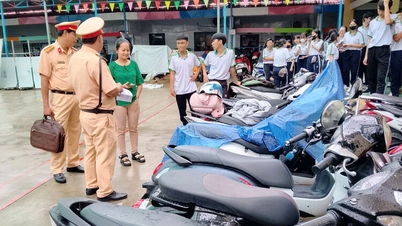








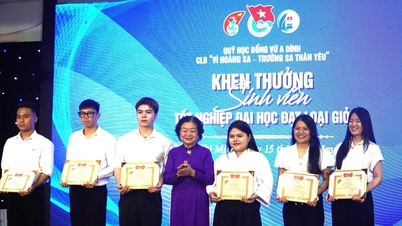
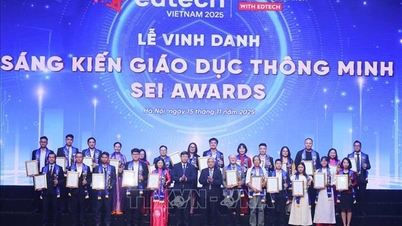

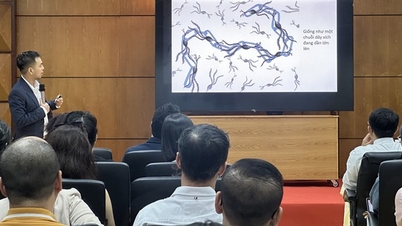

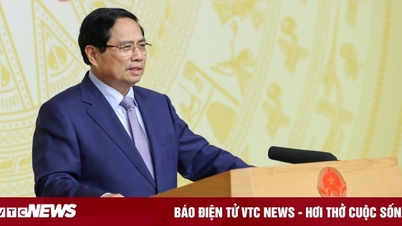

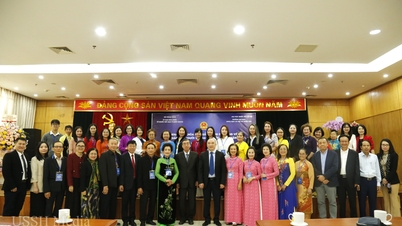






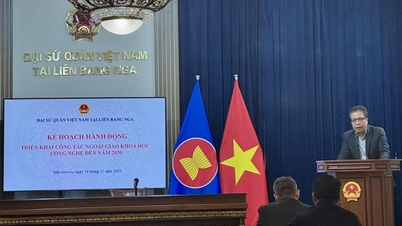
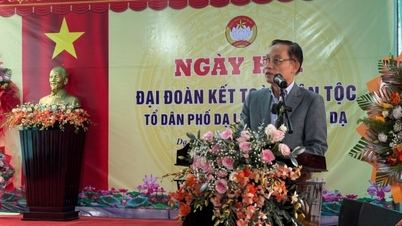
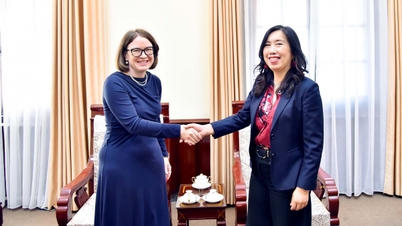
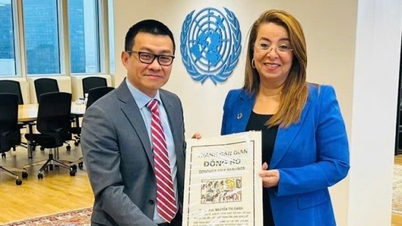
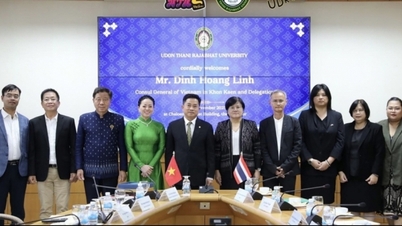





































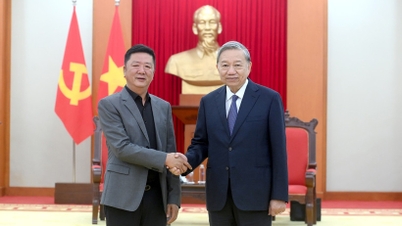




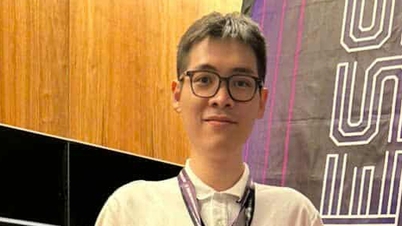

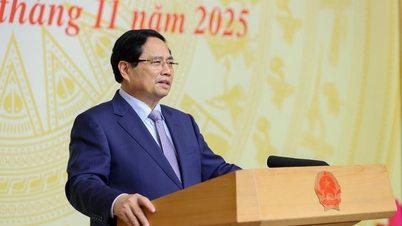






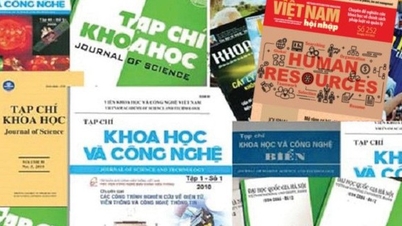
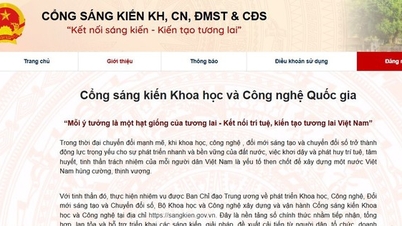





















Comment (0)